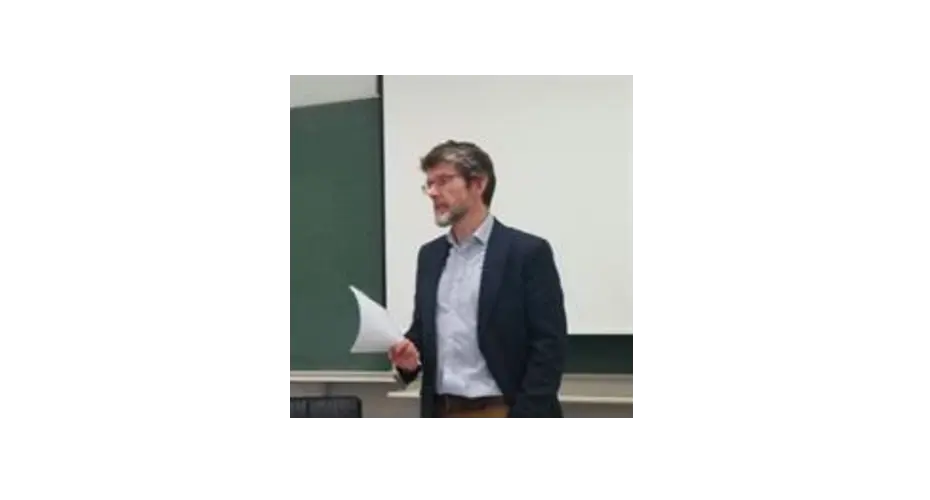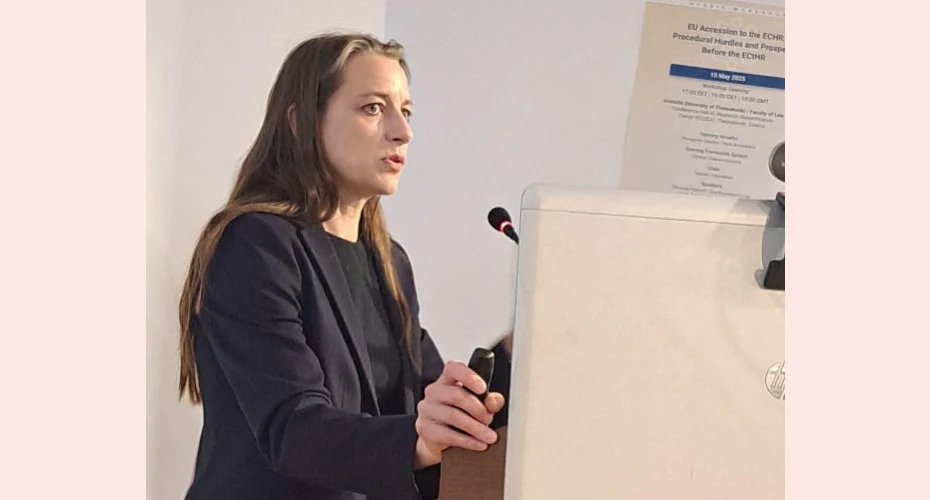Masters applications for 2025 entry are now closed.
Applications for September 2026 will open on Wednesday 24 September. Applications are now open for programmes with a January 2026 start. View our programmes »
| UCAS code |
1234 |
| Duration |
1 year full time
2 years part time |
| Entry year |
September 2026 |
| Campus |
Streatham Campus
|
| Discipline |
Law
|
| Contact |
|
Overview
- Study with world-leading experts and gain deep insight into both the theory and practice of international human rights law.
- Explore how human rights law applies to global challenges like big data, business, cyber security and armed conflict.
- Tailor your degree with a wide choice of modules to align with your academic interests and career goals.
- Join a vibrant academic community through affiliation with a specialist research centre during your studies.
- A rigorous, career-focused programme designed to prepare ambitious students for leadership in human rights law.
Top 150 in the world for Law
Top 20 in the UK for our world-leading Law research
Personal tutor support and close contact with academic staff who are leaders in their field
Entry requirements
We will consider applicants with a 2:2 Honours degree or above (or equivalent). There’s no requirement to have studied law prior to joining the course, we welcome students from any academic background.
Please also see our guidance on essential documentation required for an initial decision on taught programme applications.
Entry requirements for international students
English language requirements
International students need to show they have the required level of English language to study this course. The required test scores for this course fall under Profile B1. Please visit our English language requirements page to view the required test scores and equivalencies from your country.
Course content
The LLM International Human Rights is a rigorous and rewarding academic programme, led by world-renowned experts in the field. You’ll explore regional and global human rights systems and critically apply your knowledge to emerging challenges such as big data, business ethics and conflict.
With a wide range of optional modules, you can tailor the programme to your personal interests and career goals. You’ll also be part of a dynamic academic community, with the opportunity to join one of the Law School’s specialist research centres. This affiliation gives you access to valuable support, discussion forums, and feedback from both peers and staff throughout your studies.
The modules we outline here provide examples of what you can expect to learn on this degree course based on recent academic teaching. The precise modules available to you in future years may vary depending on staff availability and research interests, new topics of study, timetabling and student demand.
Stage 1: 75 credits of compulsory modules, 105 credits of optional modules
Compulsory modules
75 credits of compulsory modules
| Code | Module |
Credits |
|---|
| LAWM640 |
Dissertation | 60 |
| LAWM189 |
Legal Research and Writing Skills | 15 |
Optional modules
105 credits of optional modules
| Code | Module |
Credits |
|---|
|
LLM International Human Rights options 26-27 |
| LAWM145 |
Dignity, Democracy and the Law |
15 |
| LAWM157 |
International Human Rights Law: United Nations System |
15 |
| LAWM158 |
International Human Rights Law: Regional Systems |
15 |
| LAWM160 |
Law, Politics and Justice |
15 |
| LAWM155 |
Human Rights and Digital Technologies |
15 |
| LAWM161 |
Migration, citizenship and asylum in international law |
15 |
| LAWM156 |
International Crimes and Human Rights Abuses |
15 |
| LAWM166 |
Business and Human Rights Law and Policy |
15 |
| LAWM200 |
Human Rights Advocacy and Practice |
15 |
| LAWM201 |
Human Rights, Security and Conflict |
15 |
Fees
2026/27 entry
UK fees per year:
£12,650 full-time; £6,325 part-time
International fees per year:
£25,550 full-time; £12,775 part-time
Scholarships
The University of Exeter offers a wide range of scholarships to support your education, with £7 million available for international students applying to study with us in the 2026/27 academic year, including our prestigious Exeter Excellence Scholarships *. We also provide awards for sport, music and other achievements, as well as regional and partner scholarships with organisations such as Chevening, The Beacon Trust and the British Council. For more information on scholarships and other financial support, please visit our scholarships and bursaries page.
University of Exeter Alumni Scholarship
We are pleased to offer University of Exeter alumni beginning a standalone postgraduate programme in 2026/27 with us a scholarship towards the cost of your tuition fees. Full details can be found here.
*Terms and conditions, including deadlines, apply. See our website for details..
Teaching and research
Learning and teaching
Formal teaching is delivered via weekly lectures or seminars, depending on group size. Course materials are delivered directly by academic staff, and you are encouraged to actively engage in discussions and debates. You will be in control of your own learning, appropriately supported by peers and staff including a personal tutor.
Assessment
As well as the dissertation, assessment is comprised almost entirely of extended coursework essays, with written examinations in some modules where appropriate.
Research
In addition to your studies, you’ll have the opportunity to benefit from a stimulating programme of research seminars designed to enable staff and postgraduate students to experience cutting-edge research by members of the academic and legal community both within and outside of Exeter.
Extra-curricular activities
Formal learning is enhanced by opportunities to participate in a range of exciting extra-curricular activities including pro bono projects, internships, mooting and networking events.
We have close and active links with Exeter Law School alumni and honorary doctorates, many of whom occupy powerful and prestigious roles in the legal community throughout the world. Where possible, we invite individuals from this community and the broader legal profession to engage with our postgraduate students, whether through research seminars or more informal events, providing you with valuable networking opportunities.
Facilities
The Lasok Law Library, located in the Forum holds in excess of 40,000 volumes and is open 24 hours a day. You can choose from diverse study spaces to suit your specific learning needs, whether dedicated quiet study, group work, or social learning over a coffee.
Our custom-built Moot Court offers students invaluable opportunities to take part in mooting activities and is equipped with the latest technology, including high-spec video conferencing.
Read more

Professor Ana Beduschi

Professor Stephen Skinner

Dr Christine Bicknell

Professor Catherine Dupré
Professor Ana Beduschi
Ana Beduschi is a Full Professor of Law with a Personal Chair at the University of Exeter. She co-directs Research and Impact and serves as Strategic Lead on Fair and Inclusive Society at IDSAI. Her research focuses on law and technology, especially artificial intelligence, data protection and human rights. She holds law degrees from Brazil and France, and a PhD from the University of Montpellier. Her recent work examines digital identity, synthetic data, AI in migration and humanitarian action, and Covid-19 certificates. She has held fellowships in Heidelberg and Geneva and taught at Exeter since 2012.
Profile page
Professor Stephen Skinner
Stephen Skinner is Professor of Comparative Legal History and Legal Theory in the Law School. His research focuses on the comparative history and theory of criminal law under Italian Fascism and its legacies from the postwar period to the present. He also examines contemporary issues of state accountability in the use of lethal force, particularly in domestic policing, and the right to life under Article 2 of the European Convention on Human Rights. He currently serves as Co-Director of Research in the Law School, supporting the development of research publications.
Profile page
Dr Christine Bicknell
Dr Christine Bicknell is a public international lawyer specialising in international and European human rights law. Her expertise includes preventing torture and inhuman or degrading treatment across detention settings and legal systems. Her research explores intersections between legal frameworks - regional, domestic, and international - and their impact on rights protection. She focuses on structural issues that enable or hinder the application of rights, aiming to identify and address barriers to effective protection. Her published work spans the UN human rights system, the Council of Europe, the European Union and the UK legal and constitutional frameworks.
Profile page
Professor Catherine Dupré
Professor Catherine Dupré holds a PhD from the European University Institute and specialises in comparative constitutional law and human rights in Europe. She has held academic and visiting positions across the UK and Europe and currently teaches comparative constitutional law at the University of the Faroe Islands. Her research, funded by major institutions, focuses on human dignity, democracy and European legal systems. She has published widely and contributed to international scholarship. At Exeter, she directs the Human Rights and Democracy Forum and co-founded the Dignity&Democracy Blog. She is a founding member of the Eastern European Studies Centre.
Profile page
Careers
Our Masters programmes are designed to prepare you for a successful career, wherever in the world you plan to work. Employers expect advanced communication and technical skills, team-working and independent research, project-management and the very latest specialist knowledge from their postgraduate recruits.
Graduate destinations
LLM graduates either continue on the academic path and pursue their studies with a PhD; others go into private practice, corporate or public employment – including international trading companies and law firms, chartering, trade, and marine insurance, the European Commission, the Governments of EU Member States as well as international and regional courts and/or organisations or NGOs.
Careers support
When it comes to securing a graduate-level position, we enjoy extremely good relations with members of the legal profession regionally, nationally and internationally. You will be supported by an Employability Officer, the wide range of services offered by Career Zone and have the opportunity to meet potential employers face-to-face through our annual Law Fair, workshops and careers sessions.
Read more
Top 150 in the world for Law
Top 20 in the UK for our world-leading Law research
Personal tutor support and close contact with academic staff who are leaders in their field
















